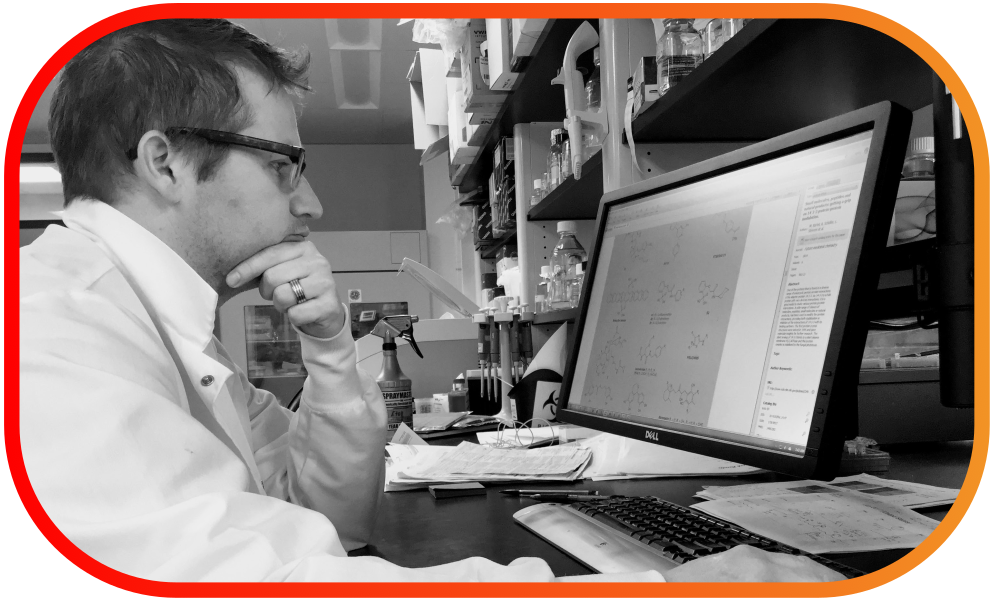About Us

Most of the world will never know about RPW8.2, a plant protein. But RPW8.2 represents a world to me! A world of opportunity and failure. For six years I experimented with fusion partners, E. coli strains, and inductants to get pure protein. Plants that have RPW8.2 are immune to a plant killer, powdery mildew, and our lab had so many experiments planned.
I'd clone RPW8.2 into a new vector I borrowed from a research group down the hall who convinced me this vector would solve my problems. It didn't, and I'd toss my pellet into the bleach-bin of my shattered dreams. I wasn't the only grad student wasting time and money attempting to coax E. coli to crank out a few milligrams. A few weeks would go by and I'd read in a newly published paper about an exciting new fusion partner. I'd spend more weeks coordinating MTAs and shipping addresses so I could try again with the same result.
"This is insane," I thought. "There's got to be a better way to test a dozen fusion partners in different orientations with different conditions."
The technology didn't exist then, but a few years later it would. Bioreactors, robotics and high-throughput technologies became widespread and commonplace. None of these is special by themselves, but together the technologies can be used to save time and money by quickly finding optimal conditions.
GrindBio was born out of that frustration with protein expression. Let us help you cut the grind.
Contact Us
Frequently Asked Questions
GrindBio is an Expression-as-a-Service platform that uses high-throughput technologies and robotics to optimize heterologous protein production in E. coli.
GrindBio optimizes protein expression by testing a large matrix of abiotic and biotic conditions, including pH, temperature, media, promoter type, and more, to find the best parameters for your protein.
GrindBio utilizes a modular bioreactor, an advanced cloning system, mRNA abundance analysis, and high-throughput screening to optimize protein expression efficiently.
Heterologous protein expression is the process of producing a protein in a host organism that does not naturally produce that protein. E. coli is commonly used as the host organism for this purpose.
GrindBio uses fusion partners in its cloning system and real-time readout technologies to ensure protein solubility and minimize the formation of inclusion bodies.
GrindBio provides comprehensive data reports that include protein concentration estimates in both soluble and insoluble fractions, helping researchers understand the efficiency and effectiveness of the expression conditions.